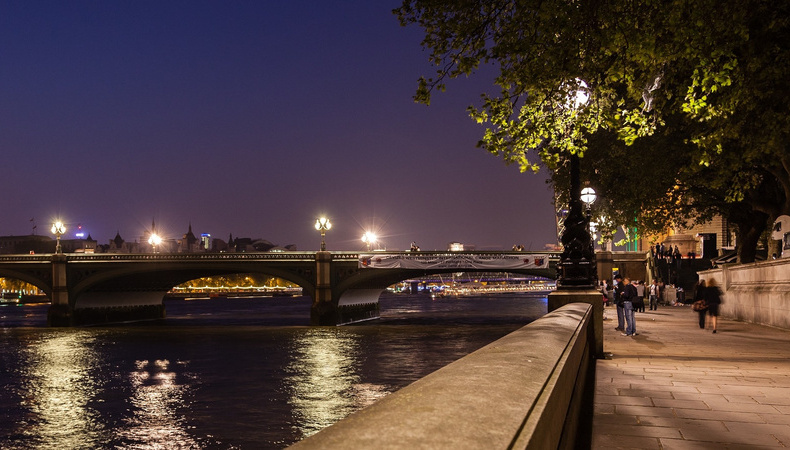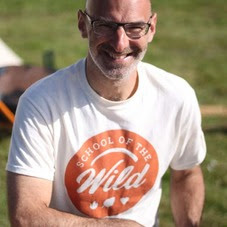How I got lost in the dark (with a Guardian journalist)
When was the last time you took a walk at night?
A few weeks ago I was asked by a journalist from the Guardian to accompany her on an evening walk on the South Downs, to talk about mindfulness and walking in the dark.
She was writing for the travel section about things you can do closer to home during Covid-19 times.
We met at a local train station and started walking up to the Downs as dusk was falling. It was a cloudy night not long after the new moon, and as daylight faded it got pretty dark.
And when I say pretty dark, I mean very dark.

(London at night)
My colleagues and I have led several of these walks over the past few years. We do them in a particular way: no torches, no phones… entirely by moonlight, walking slowly and in silence.
Sometimes the walks go into very very dark places - usually in woods - where the inky blackness can swallow you up. By knowing the route well and trusting your senses, you emerge from the experience feeling calm, energised and more connected.
The point is that a huge 70% of our sensory awareness is from sight. We've almost forgotten how to use our other senses.
When you walk in nature at night without talking, you become more present and mindful.
You quieten down. You feel the land and the ground. You feel your breathing and your body.
At night you have a different sense of the land and your place on it, and can get in touch with a stillness that’s hard to find in the day.
It's a chance to reconnect with your senses and with natural surroundings in a way we've mostly forgotten.
The only problem was… it was a while since I’d walked that route and it was so dark I couldn’t see the path clearly, and we got lost. Twice!
(Fortunately, the journalist didn't mention it in the article... and we retraced our steps and found the way without too much trouble.)
That's the challenge/beauty of walking in nature.
No matter how familiar a path or route you've walked for years in the daylight, it changes at night and by season.
As the journalist wrote afterwards, walking at night also changes your relationship with the dark. You find the dark is nothing to be feared.
As we enter a new lockdown phase and head into the dark of winter, there is so much we can learn from nature that we can apply in our everyday lives and work.
Like how we tackle the "new normal" of remote working.

(Matt Berman, Founder & Chief Wild Officer)
Our latest blogs deal with the reality of working during COVID-19 from a personal productivity perspective and as a leader of others trying to get the best from your remote team.
Like night walking, remote working benefits from slowing down, taking a pause and reconnecting with nature. I'd like to hear what you think.
Nigel Berman
School of the Wild
T: +44 (0)7764 404992
